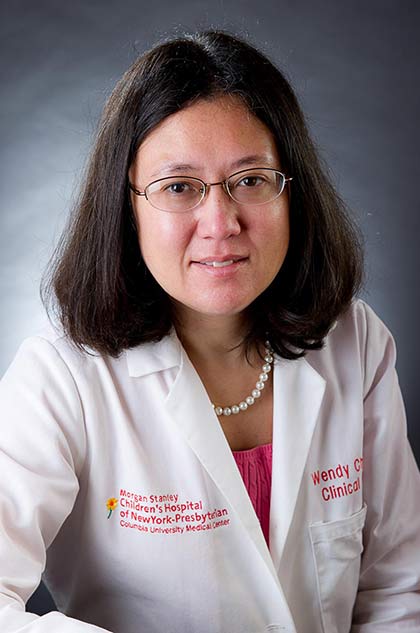News
Examining Genetic Risk Factors in Severe Birth Defect
Congenital diaphragmatic hernia (CDH) is a severe birth defect. For babies born with CDH, their diaphragms are not developed properly, with some or all parts of the abdominal organs pushed into the chest. The displacement of these critical organs can have a significant impact on how the lungs develop and grow.

Yufeng Shen, PhD, associate professor of systems biology
A recent study , led by Yufeng Shen , PhD, and Wendy Chung , MD, PhD, and their labs at Columbia University Irving Medical Center , investigated the genetic risk factors linked to CDH and analyzed data from whole genome sequencing and exome sequencing to determine novel mutations. The study also uncovered the link between CDH and additional developmental disorders.
“Many babies with this birth defect also have lung hypoplasia or pulmonary hypertension and babies have difficulty breathing. Even with advanced care available, the mortality rate is still about 20 percent,” says Dr. Shen, associate professor of systems biology at Columbia, with a joint appointment in the Department of Biomedical Informatics .
“One hypothesis is that the lung condition is not necessarily caused by the physical compression on the developing lungs in the chest,” explains Dr. Shen, “it can be caused by the same genetic defect that causes CDH. Finding those genes is absolutely necessary to improve care and develop effective treatment in the long run.”
Scientists have been aiming to identify new risk genes in CDH—and other developmental disorders—with the hope that with improved genetic diagnosis more tailored or long-term care for patients born with this defect could be provided, as well as potential targets for intervention down the road.
Says Dr. Chung, “Prenatal diagnosis of CDH is increasingly common, and genetics will allow us to more accurately predict prognosis and tailor treatment in the prenatal and neonatal period when we can have the greatest impact on lung development.” Dr. Chung is Kennedy Family Professor of Pediatrics (in Medicine) at the Columbia Vagelos College of Physicians and Surgeons and a physician at NewYork-Presbyterian .

Wendy Chung, MD, PhD, professor of pediatrics (in Medicine)
Drs. Shen and Chung, along with researchers at Massachusetts General Hospital, combined whole genome sequences and exome sequences from various studies and computationally analyzed nearly 400 cases of patients born with CDH and their parents who do not have the condition. In these previous studies, researchers have determined that de novo damaging variants played a role in the condition but, to date, recurrently mutated genes have been rare. De novo variants are new mutations occurred in a parent’s germ cells and then passed to the next generation.
In the study, Dr. Shen’s analysis identified four unrelated individuals with damaging de novo mutations in a new risk gene, MYRF. MYRF encodes a transcription factor that is conventionally thought to play a role in the nervous system. MYRF, notes Dr. Shen, typically serves as “insulation” of the axons of neurons, and the researchers found that it actually is highly expressed in the developing diaphragm and heart tissues. All of the CDH cases in the study with MYRF mutations also had other disorders, including congenital heart disease, lung conditions and genitourinary defects.
In future work, Dr. Shen and collaborators aim to expand their study to larger sample sizes, analyzing different types of genetic variants and leveraging data from other developmental disorders in addition to CDH.
The study, “ De novo Variants in Congenital Diaphragmatic Hernia Identify MYRF as a New Syndrome and Reveal Genetic Overlaps with Other Developmental Disorders ”, appeared in the journal, PLOS Genetics . Dr. Xueya Zhou, a postdoc fellow jointly mentored by Dr. Shen and Dr. Chung, and Dr. Hongjian Qi, a former PhD student in Shen lab, led the analysis. The work was funded by NIH Gabriella Miller Kids First Pediatric Research Program X01HL132366 and X01HL136998 (data generation), NIH R01GM120609, R01HD057036, R03HL138352, UL1RR024156, and 1P01HD068250.
Dr. Shen’s lab at Columbia sits at the interface of biology, statistics and computer science. The group works on developing and applying computational methods to study human genetics and diseases, with a particular emphasis on birth defects, autism, and neurodevelopmental disorders.
Dr. Chung, a leading molecular geneticist, directs NIH funded research programs in human genetics of birth defects, including congenital diaphragmatic hernia, congenital heart disease, and esophageal atresia, autism, neurodevelopmental disorders, pulmonary hypertension, cardiomyopathy, obesity, diabetes, and breast cancer.
-Melanie A. Farmer